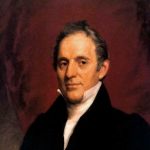One of the greatest tragedies in 21st century Christianity is the degree to which identity politics has infiltrated our churches. Hardly a day goes by that I do not communicate with believers who lament the sorrows that have come on their churches due to the godless ideologies of critical theory or intersectionality gaining a foothold in their congregations. Where once there was mutual love and unity among brothers and sisters of various backgrounds, ethnicities, educational backgrounds, or income levels, now there is suspicion, frustration, and disunity within their ranks.
Such tribalism and rivalry cannot coexist with humble, sincere devotion to Jesus Christ as Lord. To have Christ is to embrace the ways of Christ which includes living with the people of Christ in a local church in the unity of the Spirit. Christians are able to do that because “in Christ” we are made into “one new man” (Ephesians 2:15). Seeing yourself as a hyphenated-Christian before you see yourself as a blood-bought sinner inevitably tears the fabric of this precious unity.
As the Apostle Paul puts it in Ephesians 4:4-6, “There is one body and one Spirit—just as you were called to the one hope that belongs to your call—one Lord, one faith, one baptism, one God and Father of all, who is over all and through all and in all.” Any idea or teaching that leads to the balkanization of a church denies this fundamental truth and comes from the pit of hell. No Christian should fall prey to such error and no pastor should allow it entry into the church he serves.
I appreciate what Alistair Begg has written on this in a devotional thought on “The Key to Unity.” His wisdom and encouragement are welcome counsel to every follower of Christ who is trying to navigate the swirling currents of contemporary Christian thought.
The Key to Unity
“In him you also are begin built together into a dwelling place for God by the Spirit.” Ephesians 2:22
When someone comes to Christ by faith, the transformation of their identity is comprehensive. In the language Paul employs in Ephesians 2, the dead sinner is now alive in Christ; the child of wrath becomes a child of God. But the new identity is not merely individual. We are not each of us alone in Christ; we are in Him with all of God’s people. This is why Paul, in Ephesians 2, moves from our individual experience of grace to the corporate work that God’s grace accomplishes. Paul tells us, “You are no longer strangers and aliens, but you are fellow citizens with the saints and members of the household of God” (v.19). The “one new man” (v. 15) that Christ is making is gloriously crowded with fellow heirs of grace. This is not to say that our individual human identity becomes irrelevant. Our background and our makeup—our sex, ethnicity, and personal history—are not obliterated in Christ. We are who we are, made in God’s image, fashioned according to His purposes. But what unifies us in Christ—our union with Christ—transcends everything else.
We must beware the temptation to forget the reason for our unity. No one is immune from turning elements of their identity into barriers—barriers of status, of color, of class, of personality type, or personal preferences. As Christians, we must be prepared to acknowledge how easy it is to get this wrong. We must be prepared, if we find ourselves guilty of such wrong, to repent from and grieve over that which displeases God.
The key to Christian unity is the gospel. Paul recognized that only God can soften hard hearts, only God can open blind eyes, and ony God can bring disparate people together and form something truly, gloriously united. God is making “one new man” and He is making that new man in His church. In Christ, God is building a “holy temple” (Ephesians 2:21) that is “being built together into a dwelling place for God by the Spirit.” Partiality based on race, class, or status has no place in the place where God dwells by His Spirit. One day you will experience the fullness of your union with Christ and His people for eternity; but that can, and should, begin now. You have the privilege of fostering that unity today in the way you use your time and in the way you think of, pray for, and speak to your brothers and sisters in your church.
We are building day by day,
As the moments glide away,
Our temple, which the world may not see;
Every victory won by grace
Will be sure to find its place
In our building for eternity.
—Fanny J. Crosby, “We are Building”
(Truth for Life, 365 Daily Devotions, February 12)
Follow Tom Ascol:
-
- Twitter | @tomascol
- Facebook | @tomascol
- Instagram | @thomasascol
















